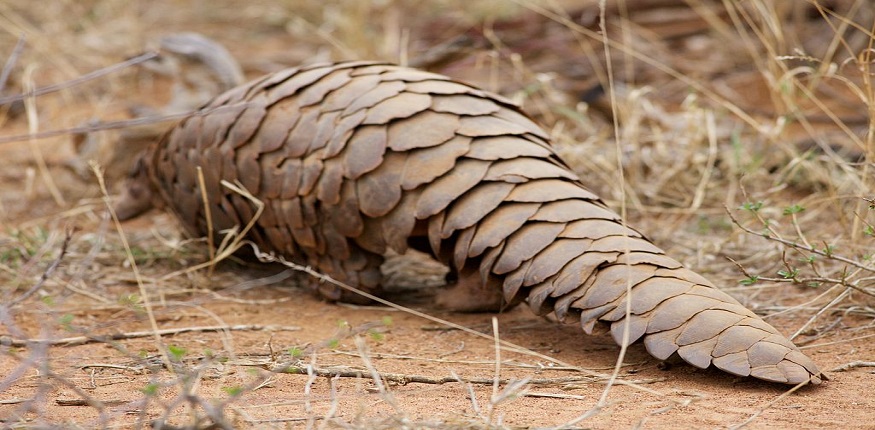Illegal Wildlife Trafficking
Every Transaction Leaves a Trace
David Fein | General Counsel, Standard Chartered Bank
July 2018

If asked to name the most profitable organised crime predicates, most people would list drugs, human trafficking or the arms trade. Few would identify illegal wildlife trafficking but recent estimates have put the global proceeds of this pernicious trade at around $10-23 billion per annum, with wider links to other forms of organised crime, money laundering and corruption.
Whilst the nature of this hidden crime makes it hard to be more precise, its impact is more quantifiable. International networks traffic illegally in wildlife to fill demand for so-called medicine, pets, ornaments and souvenirs, with a devastating impact on many endangered wildlife species, such as elephants, rhinos, tigers and the pangolin. It is estimated that between 35,000 and 50,000 African Elephants are poached each year, and there are more tigers in American backyards (estimated 5,000) than there are in the wild (estimated 3,200). Three rhinos are poached every day, and more than one million pangolins have been traded in the past ten years.
These are tragedies in their own right, but this illegal trade also has a wider impact on the national and economic security of both the source and destination countries of the trade. According to a report by Chatham House, the trade “threatens the stability and security of societies involved at every point along the chain”. Evidence suggests that the trade erodes state authority and undermines the rule of law, through the corruption and violence associated with it; tragically, over 1,000 rangers have been killed in the past ten years.
The economic impact is also disturbing. The trade deprives nations of development opportunities, through the associated instability it causes and through the loss of lawful tourist income. All of this undermines the efforts of countries to safeguard their natural resources for future generations.
The combination of these environmental, social, human and economic costs demonstrates the need for urgent action. For too long this trade has been seen by the criminal perpetrators as low risk and high profit, in part because the trade was viewed as primarily an environmental issue rather than one requiring the type of response public, private and third sectors have offered to better known types of organised crime.
Whilst the commodities in illegal wildlife trade are unique (and often endangered), the methods used by the traffickers are not. The further we explore this issue, the more we see commonalities with the other organised crimes we are working in partnership across the globe to tackle. The trade in illicit wildlife is facilitated by global networks of criminals who see it as just another means of creating profit alongside other illicit commodities. The trade overlaps with crimes such as weapons and drugs smuggling, through its transportation networks and use of corruption as tools of the trade. And like all proceeds-generating crimes, greed is its primary driver and finance its lifeblood. As with other proceeds-generating crime, finance is also its Achilles heel. The need to move, store and realise the proceeds of the trade provides a critical vulnerability.
Due to the advocacy work of key sovereigns and NGOs , and the political impetus provided by the forthcoming UK Government Conference on Illegal Wildlife Trade, the need for robust action at a global level is being not only recognised but prioritised. And there is a growing recognition of the need to involve the private sector in the response, in particular the financial sector who, through existing anti-money laundering systems and processes have a unique ability to root out suspicious activity in this trade.
As a global bank with a strong footprint in Eastern and Southern Africa and China and Southeast Asia (the leading source and demand countries), Standard Chartered recognises the role we have to play as part of a coalition of government, law enforcement, private sector and NGO stakeholders. We are actively working with a range of partners to increase our own and the industry’s understanding of the financial flows associated with the illegal wildlife trade and thereby grow the role that financial institutions play in tackling it. We are honoured to be working with The Royal Foundation through their conservation programme, United for Wildlife, and a number of other partners in forming the IWT-Financial Taskforce, which aims, among other things, to deliver conservation intelligence to the financial sector. As Vice-Chair of the Taskforce I will be working with partners across the financial sector to lead the sector’s contribution to solving this problem.
We also support the Royal United Services Institute (RUSI) in delivering a programme of awareness raising to financial institutions, financial intelligence units and law enforcement in Africa, and we are building and delivering content for our Correspondent Banking Academy initiative in relevant markets.
By raising awareness and providing information, we increase vigilance. By increasing vigilance, we increase the leads available to law enforcement and others to disrupt and prevent the trade.
All of this is a starting point in the battle to reverse the human-led decline of many protected species. But more is needed if we are to turn words into action. Increasing, expanding and optimising partnerships within the industry and between the public and private sectors is essential. As is supporting under-resourced law enforcement agencies in source countries and destination markets with time-critical intelligence. To borrow a famous military quote, it takes a network to defeat a network, and we are excited to be part of the building of this network.
Tags